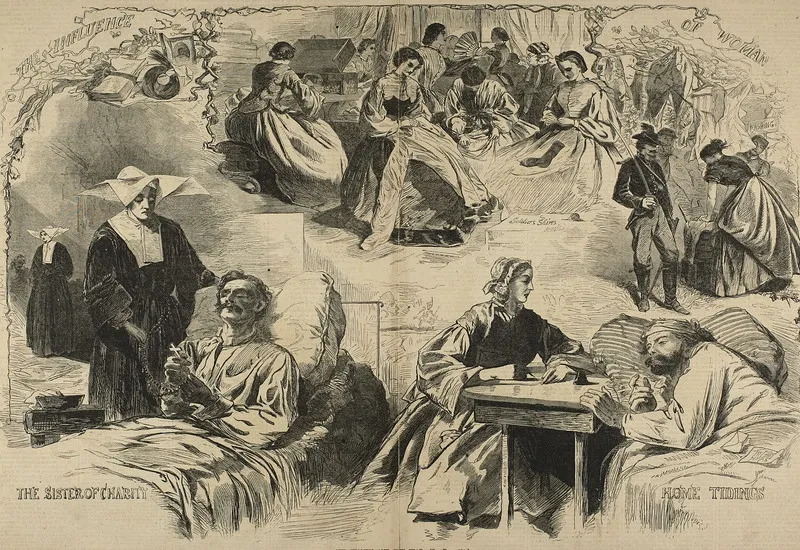Dorothea Dix had a strong background in education and published many works, including a book of facts for schoolteachers, religious poetry, and fictional texts. She founded a secondary school for women in 1831 and endured periods of illness while still teaching. It is likely that Dix suffered from a mental breakdown during this time, an experience which would later fuel her activism for mental health. Due to her health, she took a trip to England to recover.
During her stay there, she met and interacted with notable social reformers like William Rathbone, prison reformer Elizabeth Fry, and Samuel Tuke, founder of the York Retreat for the mentally ill. Dix returned to Boston in 1837 with a new interest in social reform, and with the inheritance from her grandmother, she also had the means to pursue this ambition.

In 1841, Dorothea volunteered to teach religious education to female convicts in East Cambridge Jail, where she discovered the deplorable conditions mentally ill women lived in. While the families of the middle and upper class could care for their mentally ill relatives at home or a quality treatment facility, poor people were relegated to prisons. In these prisons, they received no treatment for their illness and were physically, emotionally, and sexually abused.

Dorothea began an investigation into the prisons and Alms-Houses throughout Massachusetts and submitted a memorial, a pamphlet that was the only way the political views of women were expressed, to the Massachusetts legislature. In it, Dorothea asserted that "it is only by decided, prompt, and vigorous legislation the evils to which I refer, and which I shall proceed more fully to illustrate, can be remedied." She described abuses including caging, chaining people hand and foot, and contentment in closed stalls for over a decade, emphasizing their moral deterioration as a nation. Dorothea concluded with a call to action:

The state legislature approved more money to fund the state asylum, drawing national attention to the issue of the treatment of the mentally ill. She continued her campaign nationwide for the next 15 years and strived to allocate funds for facilities caring for the mentally ill. It is important to note that Dorothea didn't involve herself with the medical aspects of trearment or care. She was deeply religious and held that "a wholesome moral environment, with or without physicians, could restore the spiritual stability of the insane".
After experiencing difficulties in the willingness of state governments to provide funding, in 1854 Dorothea lobbied for Congress to pass the Bill for the Benefit of the Indigent Insane. The bill aimed to fund the building of asylums through selling federal land. The bill passed both houses of Congress but was vetoed by President Franklin Pierce, who asserted that the federal government's role was not "to dispense charities to the indigent." He was backed by many southern politicians who worried that federal welfare could set a precedence for federal interference in other areas seen as state responsibilities, like the institution of slavery. Despite this, Dorothea continued to campaign at the state level which she continued until her death in 1877. In the end, she founded or expanded more than 30 hospitals for the treatment of the mentally ill.

Dorothea Dix was a major female figure, but at the same time she didn't advocate for the advancement of women in the public sphere. At a time where many female activists joined the women's rights movements, she believed that women shouldn't vote or receive equal rights simply because she didn't see a need for it. Although she was a educator, Dix asserted that women should only be relegated to learn the duties of a wife and mother. In fact, she viewed her activism as only an extension of the care of a wife and mother. This was made clear during the Civil War when Dorothea was chosen to organize the nurses for the Union Army. Instead of professionalizing nursing, she believed all nurses should be volunteers. She often made judgements clouded by her determination to uphold her views on the role of women and "moral integrity" within the nursing corps, like requiring all nurses to be single and plain-looking. These policies ultimately alientaed her from other groups within the war effort. Addtionally, unlike many involved in social reform, Dorothea Dix didn't support the abolition movement. Many slaveowners supported her cause and she didn't want to lose their support.